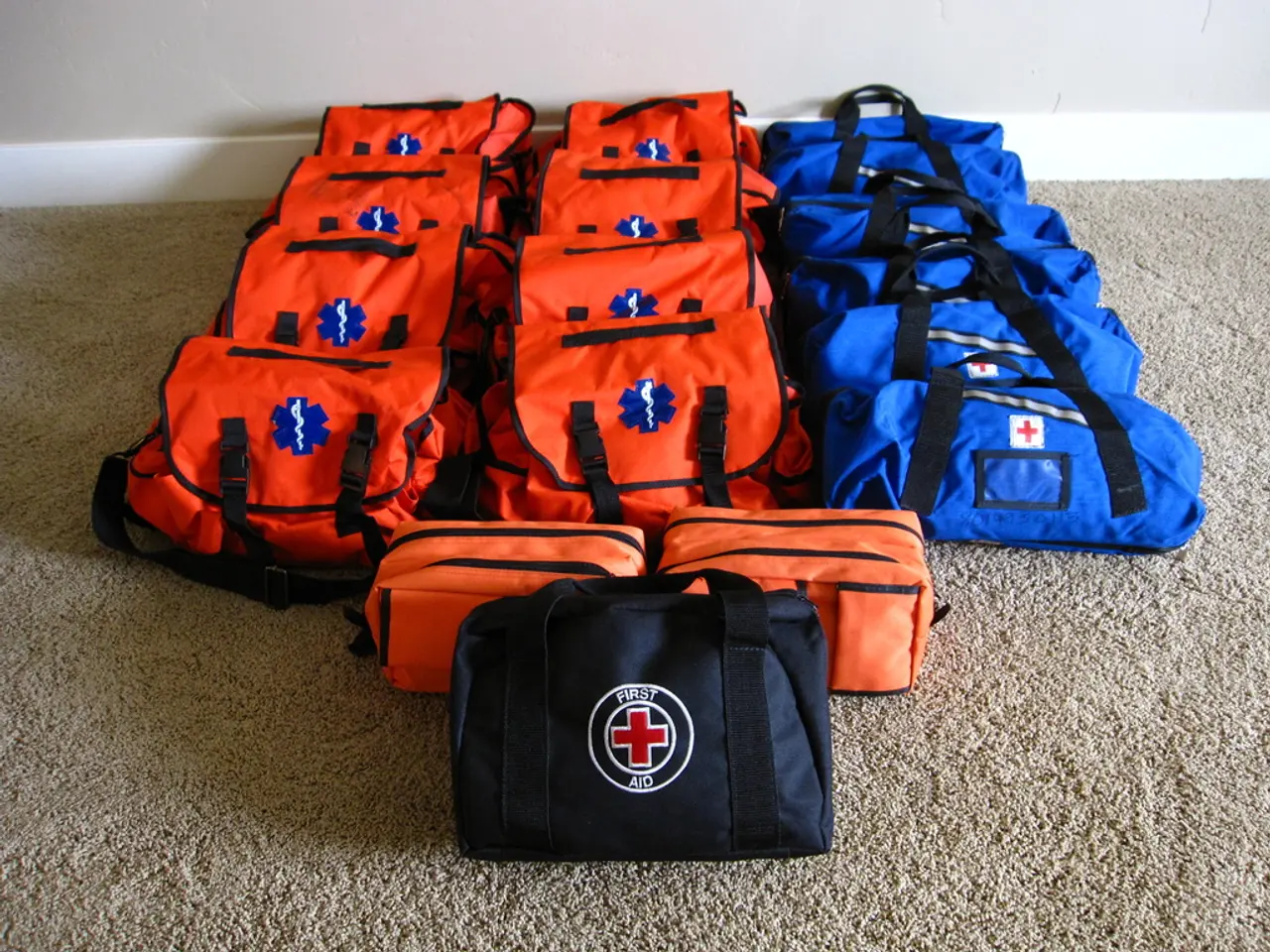Crisis Management and Basic Medical Care in English: A Comprehensive Guide
In times of crisis, clear and concise communication is vital. Learning essential English phrases and terminologies can help individuals effectively handle emergencies and administer first aid. Here are some key phrases and important terms to remember.
In an emergency, shouting "Help me, please!" is an urgent plea for immediate assistance. For example, "Help me, please! I can't move my leg!" This phrase can alert bystanders or professionals to the situation at hand. Another important phrase is "There's a fire!", a clear notification of a fire emergency.
For less immediate but still serious situations, "I need help" is a suitable phrase. In more formal circumstances, "There's an emergency" is often used when contacting emergency services.
Knowing emergency numbers is crucial. In the US, dial "911", while in the UK, it's "999". These numbers will connect you directly to emergency services.
Terms related to emergency response personnel include paramedic, emergency medical technician (EMT), first responder, and community first responder. First aid procedures and equipment are also essential to know. Cardiopulmonary resuscitation (CPR), automated external defibrillator (AED), bandaging wounds, treating bleeding and shock are all important first aid techniques.
Other useful terms include ambulance, air ambulance, rescue, stretcher, incident command, medical evacuation, lifesaver.
The basic principles of first aid focus on preserving life, preventing further injury, and promoting recovery. These principles underpin many emergency phrases and actions.
Using visual aids, like internationally recognized symbols or charts, can assist in giving and understanding instructions related to safety and first aid. Engaging in language drills can help individuals refine their speech for high-pressure situations.
Accurate injury descriptions are important in first aid scenarios. Terms like "broken bone", "heavy bleeding", "unconscious" provide specific information quickly.
Mastering essential English for emergencies and first aid is crucial for effective communication. In natural disasters, understanding terms like "evacuate", "shelter", "landslide", "aftershock", and "safe zone" or "evacuation route" is critical for ensuring safety.
Practicing emergency English phrases enhances response rate and clarity in emergencies. Key phrases include "help", "emergency", "urgent", "Call an ambulance", "I need help", "someone has fainted", "there's a fire", "we need police".
Utilizing technological aids or community resources can help individuals learn and practice essential emergency English phrases. Networking with community resources or attending local workshops can strengthen linguistic preparedness.
Phrases like "Can you hear me?" and "Stay still, help is coming" can help assess consciousness and encourage calmness. In medical emergencies, understanding how to describe symptoms succinctly or communicate patient history and medical conditions can greatly aid healthcare professionals in diagnosing and treating a patient effectively. Terms such as "allergic reaction", "chest pain", or "difficulty breathing" provide specific information quickly.
Clear instructions for first aid, such as "Press here to stop the bleeding", or "Hold their head steady", can support collaborative first aid efforts. Role-playing scenarios can help build muscle memory for emergency situations.
For those with language barriers, practicing in simple sentences or using translation applications during non-emergency times can build familiarity and confidence.
In the context of medical emergencies, it's essential to understand health-and-wellness terms such as "allergic reaction", "chest pain", or "difficulty breathing". Moreover, during a crisis, learning phrases like "Can you hear me?" and "Stay still, help is coming" can help communicate effectively, ensuring the accuracy of information and promoting recovery.




